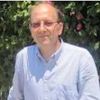
Luca Guala
- Course: MSc Transport Economics
- Year of graduation: 1999
- Nationality: Italian
- Job title: Partner, Senior Project Manager
- Company: Systematica Mobility Thinklab Srl (MLab)
In 2012, together with my partners, I founded “MLab” an independent consultancy dedicated to transport planning, with a special attention to urban requalification, sustainable mobility and innovative transport systems. Previous to the birth of MLab, my partners and I had been working together for several years in the same company, so, along with our expertise, we brought into our newly born company the teamwork capacity that we developed in our previous engagement.
My main task at the moment is to “find jobs” for MLab, exploring the world market for opportunities in transport planning. We are a small, dedicated company, so rather than competing with the big corporations on their favourite battlefields, we chose to explore little-trodden grounds such as innovative transport systems and to investigate some peripheral markets. I am currently busy with a very interesting innovative transport project in the Middle East and with an ambitious, long term “city requalification” project in Eastern Europe, where the administration wants to jump from the current status which resembles the western cities of the 70’s, to the 2020’s without going through the mistakes that we westerners did in between.
At ITS I acquired solid grounds in transport economics, as well as improving my fluency in English language, which proved fundamental to widen the boundaries of my activity. I have always had a rather “mechanical engineering” twist to my academic and professional culture. Transport economics was new for me and at ITS I had a “coup de foudre” in a certain way, in great part thanks to the classes of Professors Peter Mackie and Peter Bonsall. I soon became interested in economics which proved a very useful addition to my culture and together with my on-going passion for machines and machinery of all kinds, took my career towards the field of innovative transport systems.
Innovation and sustainability in transport is a rather mixed ground where new, largely unproven technologies must come at terms with the old rules of demand-supply equilibrium and cost benefit ratio. I found that more often than not, those who were keen on innovative transport had little knowledge of transport economics and vice-versa, so I found my cosy niche somewhere in between these two categories of specialists. Thanks to my knowledge of English language, in great part, acquired and refined while I was studying at ITS, I focused my skills in international projects. This expertise was fundamental to allow myself to have a broad vision and scope and to help our company wade through the current economic crisis.
I must say that my work is definitely not boring and it gives me great satisfaction, both professionally and culturally. I am not becoming very rich, nor do I have the ambition to become so, but I certainly keep my mind busy. I feel that I am contributing in some way to a better world and in addition, I have plenty of interesting stories to tell to my daughter after a trip abroad.
I can boast stories such as having travelled from Italy to Singapore and back in the same day, having done traffic counts at +45°C and at -25°C and I am currently learning Russian which is proving quite a difficult task but a necessary one since unfortunately, English is not widely used as a business language in the former USSR Countries.
After graduating in Civil Engineering, and specialising in Transportation at the University of Cagliari (more or less the equivalent of an MSc), in 1996 I started a PhD in Transport Technique and Economics at the University of Palermo, Italy. A term in a study or research institute abroad was strongly recommended to PhD students of this University. Already having certain knowledge of the English language, I looked mostly at English language institutions that could host me for a certain period. My search focused on the papers written by specialists in Transport Planning and Economics and more specifically, in the field of research of my PhD, which was the “activity based” approach to Travel Analysis. I reluctantly discarded USA and Australian institutes because of the cost of travel and selected a number of Universities in the UK instead, Leeds being among them.
After singling out Leeds, UCL and Southampton, and writing to all three, I don’t remember why I finally chose Leeds, but I certainly do not regret the choice, having found a very stimulating academic environment. For my PhD research, I was supervised by Professor Peter Bonsall, and I attended as many academic courses as possible to improve my general knowledge and “fill the gaps” in my academic preparation.
My advice, especially to foreign students wishing to spend time at ITS is to get the most of the courses and the academic environment there. Do your best to improve your English language skills, even if they are already good, and get a full immersion in the world of study and research. Develop social contacts, communication, be part of the society of ITS both in and out of academia. You will carry that legacy for your entire life, academic, professional and beyond. Oh, yes, and buy yourself a bicycle!

